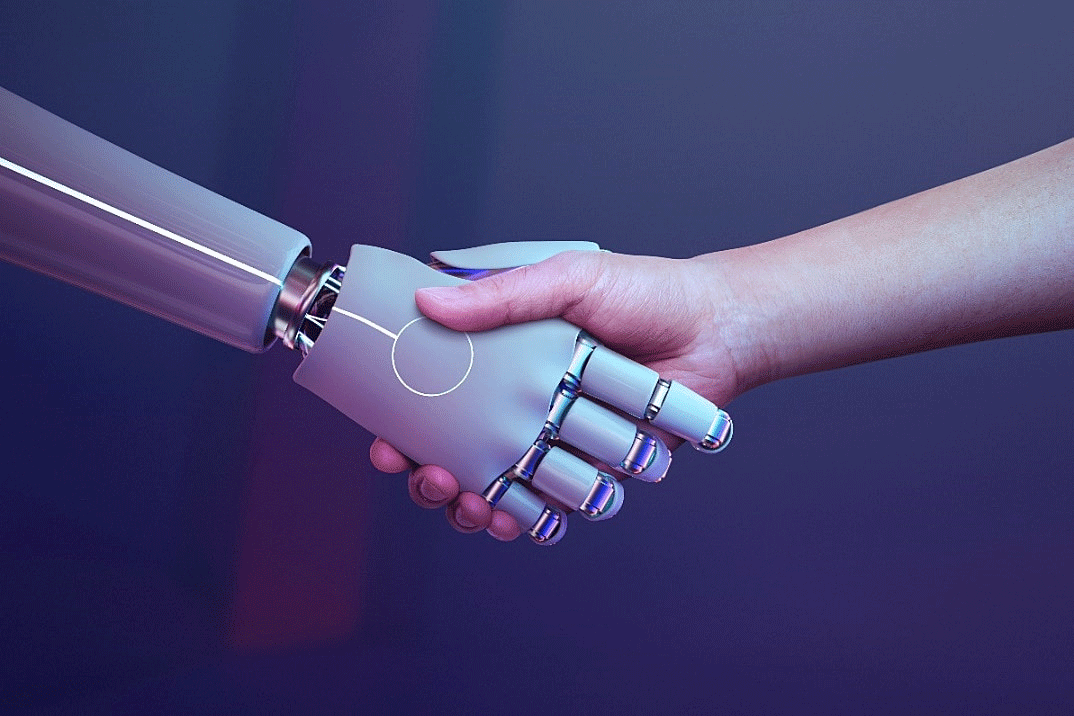AI showed to be able to construe juridic arguments and suggest decisions for civil and divorce cases. Evidence from AI apps in medicine shows its diagnostic capabilities. We learned that AI bots have defeated poker professionals and even the chess world champion Garry Kasparov. We easily get carried away from AI magic but are oblivious to the perils of such developments.
The latest developments in artificial intelligence (AI) have taken the breath away from its enthusiasts and bombarded the public discourse with prophecies of the kind of “AI is the destined future” or “the future is inescapably AI.”
A born skeptic like myself – or socially bred as a skeptic during my 25 years of life under socialism, and further forged as such by democracy failures – somehow find it hard to comply with the idea of any future destiny, not only because of my first-hand experience with empirical failures of such prophecies but also because of the extraordinary ethical problems that the social engineering of such a future brings about. I cannot know whether or not the future will be AI, but I know that such a future is the least that I would prefer.
From the content perspective, AI is not new at all. The dream of a perfect world beyond the actual spoiled one is as old as mankind itself. Such a dream has created God, Paradise, redemption, and the end of history. Initially, such daydreaming was parochial and seemingly innocuous, except when it fell in the hands of politicians and became lethal.
The Industrial Revolution, the birth of the machine, and the emergence of the free individual
However, only the colossal technological developments of the Industrial Revolution by the end of the Eighteenth and early Nineteenth Centuries would inspire dreams of a perfectly manufactured future, just as the machine could easily manufacture fine products that previously used to be rustically manufactured by the artisan’s rough hands. The machine could materialize what previously was simply philosophical speculation: a prosperous future where the individual is no longer at the bottom of the social food chain, the slave born to serve and suffer.
Now the individual possesses power and control over the machine, which, in turn, works for him. The machine brought about unprecedented social transformation, and, for the first time, the free individual concept emerged.
Before, humans were products and hostages of their own social circumstances. However, here comes the machine as a social construct inferior to any humans, no matter how downtrodden and submitted a human might be, and all of a sudden, that downtrodden and submitted human discovers agency in the shape of power and control over the machine.
The awareness of such power and control brought about other ontological implications, such as the search for the individual’s role in society, human rights, as well as human relationships with other individuals and the entire society.
The rise of political ideologies and the machine’s central role in political utopias
It is not a coincidence that a colorful range of utopic thought structures is associated the emergence of the machine. They were initially primitive and shallow, in the shape of Rousseau’s social contract or Hegel’s end of history. Still, they gradually became more sophisticated – along the machine – and managed to improve the logical connection between the unpleasant contemporary reality with normative propositions to overcome it. Theories such as Marxism, Feminism, and Racism/Nazism all viewed social development as the clash between rival social groups (for Marxism, classes; for Feminism, genders; for Racism/Nazism, races).

Source: freepik.com
For all of them, the machine was either at the core of the social conflict or its solution or both. For Marxists, the machine was what made someone a worker, his source of existence, liberation as well as oppression. For the Nazis, the machine was the tool and symbol of Arian superiority over inferior unmechanized races. For a feminist like Shulamith Firestone, the machine would enable the triumph of women over men. For her, women are inherently superior to men, but the latter take advantage of women’s physical debilitation during pregnancy to establish their domination over the family and entire society. But technological developments have made possible in vitro fertilization and incubators to substitute for women’s pregnancies.
Thus, the machine would serve now for human procreation, and women, unfetter by pregnancy, would use their innate physical and intellectual superiority to dominate human society.
All those theories were simultaneously utopic and teleological. They were utopic because they underpinned their logical reasoning on untestable and unplausible assumptions about human nature. They were teleological because they all relied on their own versions of the final stage of human development. Such final social order would be as perfect as to be considered the end of history.
No other major social developments would be possible and even necessary afterward: communism, women, or the Arian race would dominate in eternity. The centerpiece of that future would be the machine, which would work for humans and produce their happiness. The second and third waves of the Industrial Revolution (radio and semiconductors, respectively) brought about further sophistication in those thought systems and even revolts against the machine (environmentalists lament now the pollution that bots are causing to the planet just as they complained before against machines’ negative effects on the environment). Still, they did not change the essence of humans’ relationship with the machine: it works for humans.
Enters AI, with its rapid progress, flourishing over the human aspiration for innovation and progress, but also over human recklessness toward major ethical and social problems that usually associate any innovations in particular and progress in general. Moreover, the AI expansion is taking advantage of humans’ increasing arrogance and human confidence in being in control of the Earth, the machine, and itself. It would be wasteful to explicate here how ridiculous those claims sound, so let’s rather focus on the perils lurking ahead. AI has captured the imagination of an entire generation, making it ruminating that “AI is the future,” without even thinking of the terrible implications for mankind that this prophecy would bring about if it comes true.
The AI promise: the machine will think for humans
Until yesterday, the machine worked for humans. AI’s promise today is that the machine would think for humans. AI apps in jurisprudence show that bots are able to construe juridic arguments and suggest decisions for civil and divorce cases. Evidence from AI apps in medicine show its diagnostic capabilities. An OpenAI bot has badly beaten a top DOTA 2 player, and we already learned that bots have defeated poker professionals and even the chess world champion Garry Kasparov.
We easily get carried away from AI magic but are oblivious to the perils of such developments. What would happen to mankind if the machine would think for us? During the last 300 years, we have been used to promulgate our agency through the Enlightenment aphorism “cogito ergo sum” [I think, therefore I am]. Would we still exist if we hand over to the machine our capability and practice of thinking?
For all of them who find those concerns unplausible and that humans would continue to control the machine, I have some bad news: this time around is different. Until now, the machine has simply applied our commands; now, the machine is learning. That would enable it to escape our control and, eventually, turn against us. Machine worship, enchantment with its capabilities, and daydreaming that it would lead to a superior and final social order sound similar to the political utopias of modernity (which I mentioned above) that tragically tried to materialize during the Twentieth Century. Differently from before, the AI utopia could be the last one and fatal for mankind.
Please refer to the Terms before commenting and republishing the content. Note: The views and opinions expressed in this article are those of the author and do not necessarily reflect the views of the Institute of Communication Studies or the donor.


